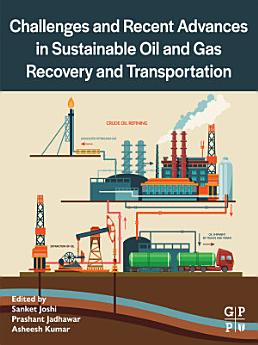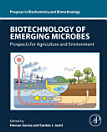Challenges and Recent Advances in Sustainable Oil and Gas Recovery and Transportation
About this ebook
About the author
Dr. Sanket Joshi is currently a Professor at the Amity Institute of Microbial Technology, Amity University, Rajasthan, India. He has academic teaching and research experience of about 16 years, and industrial R&D experience of about 4 years in India and Oman. While working in Indian pharma companies, he undertook several turnkey projects. His current research interests encompass energy (In-situ/ex-situ microbial enhanced light/heavy oil recovery; chemical enhanced oil Recovery; biofuels), microbial products (biosurfactants, biopolymers, R&D and scale-up), and environmental bioremediation (crude oil pollution; analysis, mitigation and control of souring by Sulfate reducing bacteria; HPAM contaminated sites). He has about 125 scientific publications in international journals, book chapters, and conference proceedings, and two books to his credit. He is an Academic/Associate Editor for: Frontiers in Microbiology, PeerJ, Ecotoxicology (Springer), Petroleum Science and Technology (Springer), Biotech (Springer), and Open Biotechnology Journal; guest editor for Frontiers in Microbiology, Sustainability, Scientifica, and Open Biotechnology Journal.
Prashant Jadhawar is an experienced academician with industry experience of more than 18 years in the United Kingdom, Germany (senior reservoir engineer R&D, Wintershall Holding GmBH), India, and Australia. His expertise areas are enhanced oil and gas recovery (CO2 sequestration, low salinity waterflooding, and chemical processes, gas hydrates in porous media), flow assurance (gas hydrates), res¬ervoir modeling and simulation, pipeline transport of gases (hydrogen, CO2), and their storage in geoformations (current). He delivered numerous conference presentations and invited talks, published 42 articles, and is an editorial board member of Springer Nature Journal Scientific Data and the continuing education committee of SPE Aberdeen section.
Asheesh Kumar is a scientist (Ramanujan Fellow) at CSIR—Indian Institute of Petroleum, Dehradun and an assistant professor at AcSIR (Academy of Scientific and Innovative Research). He is in the list of world’s top 2% scientists released by Stanford in 2022 and associate member of Royal Society of Chemistry (MRSC). He has worked as a senior research associate at the University of Western Australia, National University of Singapore, Singapore and as a visiting scientist at the CSIRO, Western Australia. He received his MTech degree and PhD degree at IIT, Roorkee, India and CSIR—National Chemical Laboratory, Pune, India, respectively. His broad research focus is on energy, environment and sustainability.






